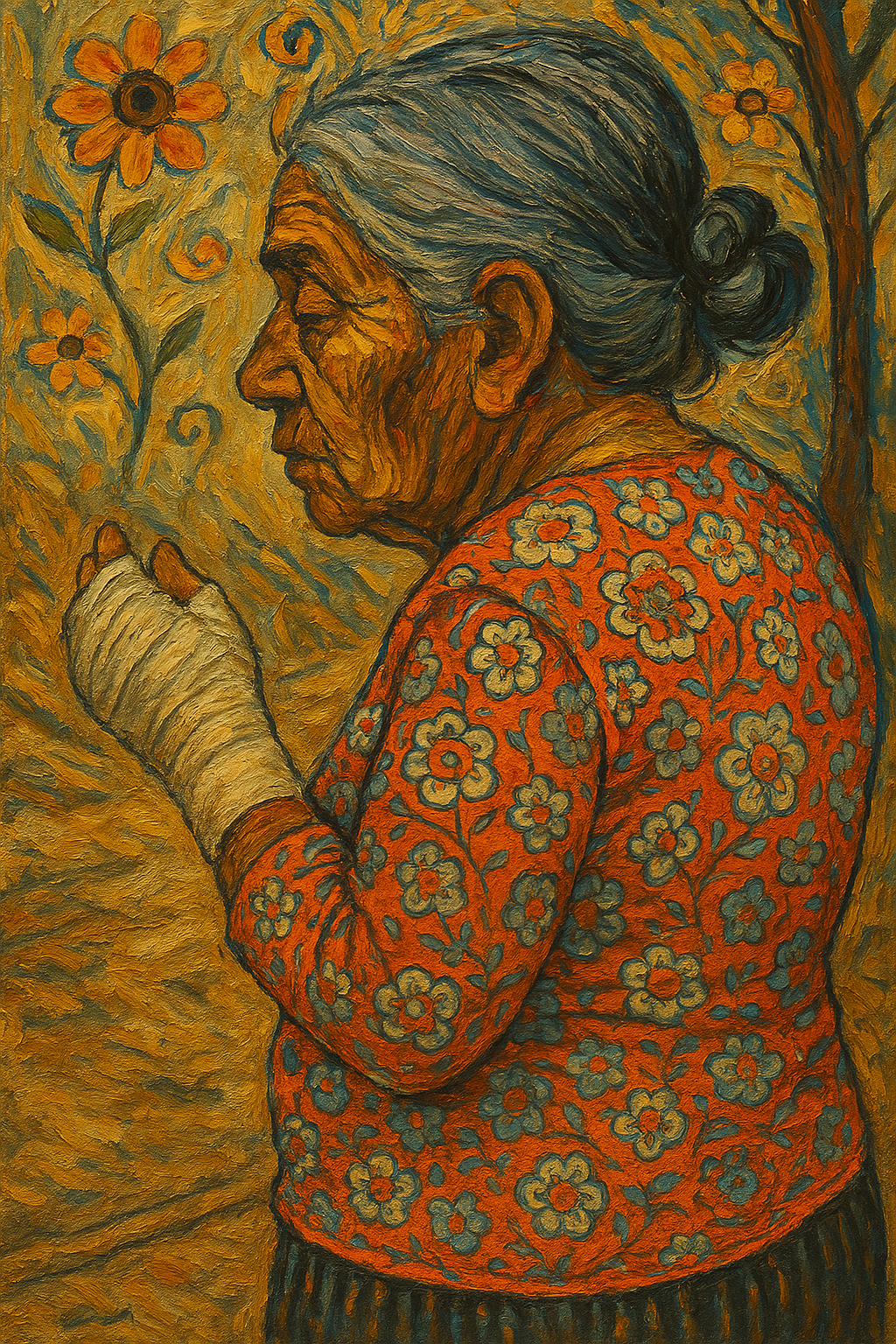What Huautla Taught me
There are places that do not ask for your understanding—only your humility.
Huautla de Jiménez is one of them.
It does not shout its wisdom.
It waits, patiently, for you to shed the layers that keep you from hearing.
I arrived carrying what most of us do:
a mind cluttered by modern noise,
a body conditioned to productivity,
a spirit dulled by the illusion that to know is to understand.
But understanding, I’ve come to learn, is not an arrival.
It’s a softening.
It’s the willingness to be changed.
High in the cloud-wrapped mountains lives Carmen, a Mazatec curandera, a woman whose presence quiets the wind.
In her careworn hands lives the memory of centuries.
She moves through her world as if it were a sacred ritual—
tending her plants, her home, her lineage—
with a grace that makes time forget its pace.
She does not posture.
She simply knows.
And in that knowing, she makes space for everything to breathe.
She shares this land with her husband,
a man whose gaze seemed to drift inward—
as though time had asked something of him he was not ready to give.
Their daughter, a woman of two worlds,
had returned from the city softened by distance and remembrance,
a bridge between past and present.
Carmen carries knowledge passed not through books but breath—
a living archive of medicine taught by her parents,
and their parents before them.
This is not folklore.
This is a cosmology.
It is the science of spirit,
the logic of the land,
the grammar of plants.
Her garden is not just a garden—
it is an apothecary of the soul.
One afternoon, after walking the land
and hearing the names of plants spoken like old friends,
her daughter turned to me and said:
“My mother wants to clean you.”
I said yes,
not knowing that I was accepting more than a ritual.
I was accepting a reordering.
She began behind me, hands on my back,
and from her mouth came the first of many burps—
odd to my conditioned ears,but later I would understand them as sacred exhalations,energetic releases,
as though her body was drawing out what mine had forgotten how to let go.
She anointed my arms with a clear alcohol,
not to cleanse the skin, but the field around it.
This was not disinfection—
this was initiation.
Nearby lay an arrangement of herbs she had gathered from her garden—
each one a sovereign intelligence,
a healer in its own right.
She soaked them
and began rhythmically striking my body—
not in punishment,
but in communion.
It was the sound of old grief being dislodged,
of tangled thoughts unraveling.
Then came the oil.
Floral. Unmarked. Sacred.
She massaged it into my neck and arms using a lime,
which in her hands became both instrument and sponge,
absorbing the residue of what no longer belonged to me.
Again, she burped—her body continuing the dialogue
mine had only just begun.
Then, in a gesture that felt like both blessing and exorcism, she took a mouthful of alcohol and spat it—
onto my chest,
my arms,
my being.
It was shocking.
And yet, it felt like a consecration.
Her words in the local tongue
wrapped around me like a prayer spoken by the land itself.
Finally, she gave me the lime and asked me to throw it—
a gesture of final release.
Then she led me to a tree
and asked me to touch it,
then to hug it.
And in that embrace,
something ancient met something forgotten in me.
The tree, unmoving, bore witness.
What followed was not tiredness,
but a kind of sacred depletion.
The unraveling of urgency.
The shedding of roles.
My thoughts no longer surged ahead of me.
They walked beside me, in silence.
Carmen had not just performed a ritual.
She had excavated the energetic debris of a modern life.
She had realigned something too deep for words—
my nervous system,
my spirit,
perhaps even my ancestry.
I did not understand it all.
But I felt it.
And that feeling was truth beyond language.
The world didn’t change after Huautla.
I did. I was reminded that healing doesn’t always look like insight or clarity.
Sometimes it’s an old woman burping behind you.
Sometimes it’s a lime thrown into the underbrush.
Sometimes it’s a tree holding what you can’t name.
Some teachings are not meant to be interpreted.
They are meant to be lived,
honored, and remembered quietly.
Carmen didn’t teach me anything in the way we usually mean it. She simply showed me what it means to return to rhythm—to root in what is real, to feel the deep, wordless medicine of being alive.








